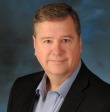Originally published as “Do No Harm” in the Jul/Aug 2016 issue of Faith Today. Republished by permission.
Imagine growing up with a passion for helping people get well – a gift of healing, some might call it. You are fascinated by medicine and helping people live well.
We all know someone like that – a relative, a friend or perhaps you.
You study and train, and become a nurse or a doctor. Then imagine being told helping people commit suicide will now be part of your duties. You know this would be entirely opposite to your gifting and calling.
You see your work as an act of worship to God and a fulfilment of His command to love and care for those who are sick and near death. You have committed to “do no harm” as stated in the Hippocratic Oath – but now you will be required to kill.
The Canadian Medical Association says only about a third of their members are willing to participate in assisted suicide.
Some are willing to refer to another who will kill but do not want to directly participate. But many who object to assisted suicide and euthanasia believe they should not be required to provide an effective referral. For them it would be no different than writing a prescription for the procedure.
In the medical world referral means the doctor agrees the procedure is in the best interest of the patient and consistent with their commitment to “do no harm.”
The EFC and other groups have pressed hard for clear protections for those who object on conscientious and religious grounds to participating in assisted suicide. A coalition was formed – the Coalition for HealthCare and Conscience – for the sole purpose of protecting the freedoms of medical professionals and heath care institutions.
No other jurisdiction in the world that allows assisted suicide or euthanasia requires medical professionals to participate. Yet there is strong resistance to providing this basic protection in Canada. Why?
There are conscience-respecting ways of connecting patients with willing doctors and nurses – models have been developed and proposed.
Far better for Parliament to ensure protection by making it a Criminal Code offense to coerce someone to act contrary to their beliefs. Or protection could be written into the assisted dying legislation by adding a guarantee that participation be voluntary.
Parliamentarians know at least one professional college of physicians and surgeons (Ontario – the largest) is already compelling the unwilling by requiring an effective referral. Yet so far attempts to include strong protection have failed.
It can be argued that requiring all to participate is simple and convenient. Refusing to accommodate real differences is always easier.
But we live in a religiously plural society where the freedoms of some will conflict with the convictions of others. Otherwise we are no longer plural in any meaningful sense and the meaning of freedom is empty.
Compelling some to participate in killing another is incompatible with life in a free society.
Perhaps a deeper motive for compelling the unwilling is to guarantee and solidify this radical change – force those who disagree to capitulate or leave. Many are uncomfortable with the act, and eliminating those most opposed from the profession and making all others complicit will erode resistance. Can it really be wrong if we all participate?
It seems inevitable that “do no harm” will no longer be the unifying and clarion call of medicine. But will a plurality of views and approaches be tolerated within the health care system? Or will what has now become legal be the new morality from which dissent will not be tolerated?
For centuries most health care systems have been animated by core beliefs in keeping with – and often arising directly from – Christian faith. We are on the verge of forcing out many who are deeply committed to the sanctity of human life. Without adequate protection federally the battle for religious freedom and conscience will be fought provincially and territorially. We need to take a stand for the freedom of medical professionals to heal and not kill, and for the ability of health care institutions, including faith-based ones, to honour that same mission and purpose.
Bruce J. Clemenger is president of The Evangelical Fellowship of Canada. Please pray for our work. You can follow us on Twitter @theEFC and support us financially at TheEFC.ca/Donate or toll-free 1-866-302-3362.
Author:
Bruce J. Clemenger